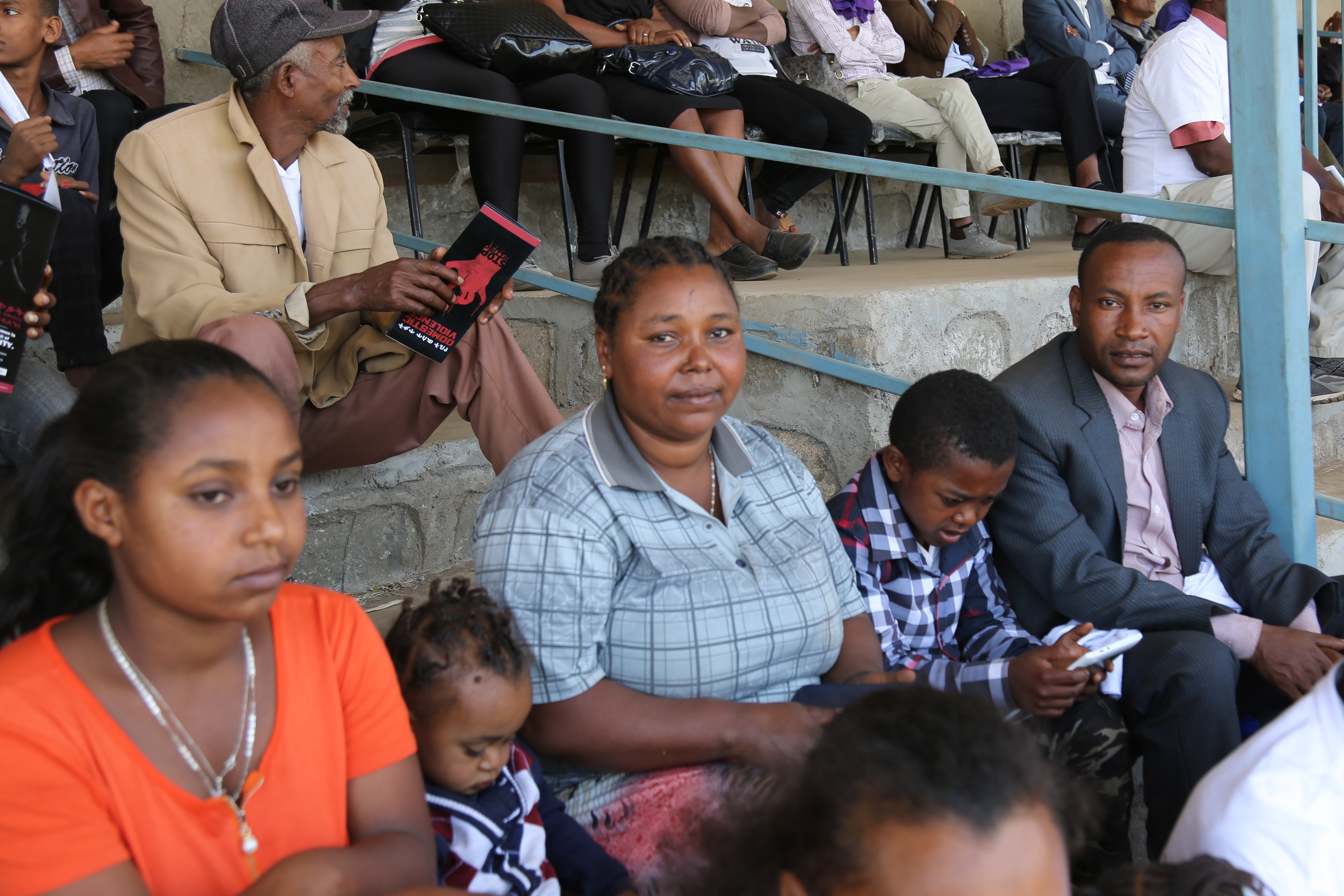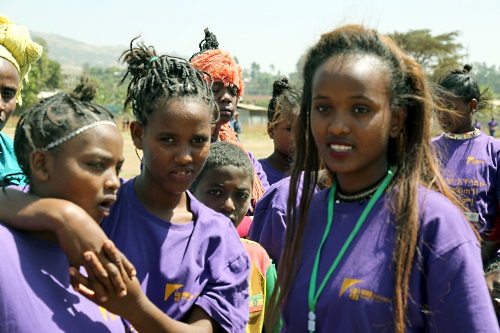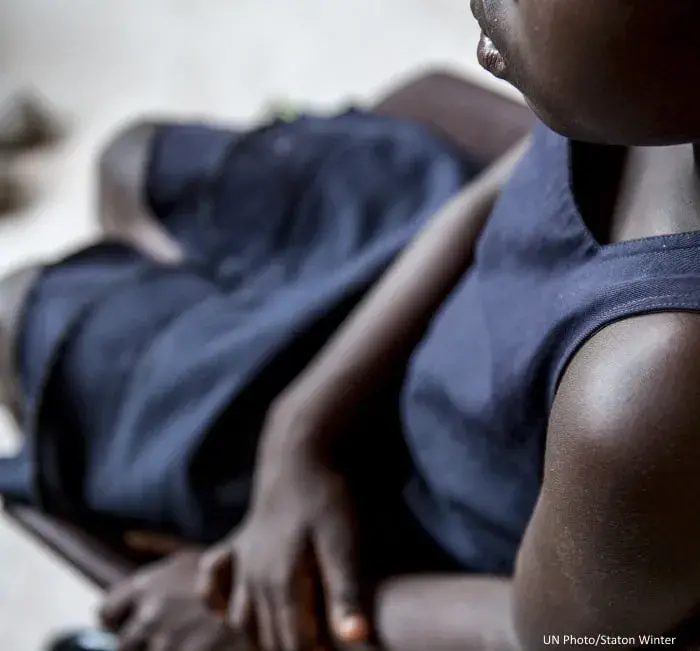DURAME, Ethiopia – Genet Girma, 31, is something of a trailblazer in her community. Fifteen years ago she ran away from home when she learned that her mother was planning for her to undergo female genital mutilation (FGM).
As in many other communities in Ethiopia, FGM is deep-rooted in the Kembatta community, to which Ms. Genet belongs. The practice can cause lasting harm, including pain, infection, haemorrhage and complications in childbirth. It can even be fatal.
But Ms. Genet had learned about these consequences from local activists, and she refused to undergo the procedure. However, the stance she had taken against FGM meant she would have to leave home.
If I didn’t have support, especially from my partner, things could have gone wrong.
Fortunately, shortly after she left home she ran into her fiancé, who said he would support her. In fact, he said he would only marry her if she was spared from FGM.
“If I didn’t have support, especially from my partner, things could have gone wrong,” she says.
Changing mindsets

Around the time Ms. Genet’s mother was arranging to have her daughter cut, a local non-governmental organization, Kembatti Mentti-Gezimma (KMG), began operating in the community. KMG raises awareness about the harmful effects of FGM, and encourages community members to mobilize against the practice.
Since its launch, many influential members of the community, youth advocates, empowered girls and others have come together to change attitudes about FGM. Apart from their activities in communities, information about the ill effects of FGM is also broadcast through local media.
Sometime after she had left home, Ms. Genet married her fiancé – without undergoing the cut. Sadly, their families were initially unsupportive. “No member of our families – from either side – attended our wedding,” she recalls.
But after they had wed, KMG visited their families to explain the consequences of FGM – and as a result, her parents eventually accepted her decision.
After my marriage, most of my friends got married to girls that are not circumcised.
Then, other young couples in the community began to follow their lead.
“After my marriage, most of my friends got married to girls that are not circumcised,” says Addise Abose, Ms. Genet’s husband. “I am happy that I have become an example.”
Celebrating being whole

About 65 per cent of Ethiopian women aged 15-49 years have been subjected to FGM, according to a 2016 survey.
In the Kembatta community, the practice was traditionally considered a rite of passage into adulthood. But activists have now introduced an alternative rite of passage.
At the annual ‘Wimetta’ – or ‘I am Whole’ – celebration, girls who have bravely refused to undergo FGM receive public recognition for this stand by their community. They are given a silver pendant.
‘Uncut girls’ clubs’ have also been formed, in which girls help to educate their peers, encourage families to exchange their views on FGM, and speak up for girls’ rights in the community.
In the school compound, we are teaching girls from different villages about harmful practices, especially FGM.
UNFPA partners with KMG to support these clubs. UNFPA also works with KMG to end child marriage and gender-based violence, and to promote reproductive health.
Miheret Tadesse,19, chairs the Uncut Girls’ Forum at her school. “In the school compound, we are teaching girls from different villages about harmful practices, especially FGM,” she says. The practice is on the decline in her community, she adds.
– Meron Negash with input from Abraham Gelaw




